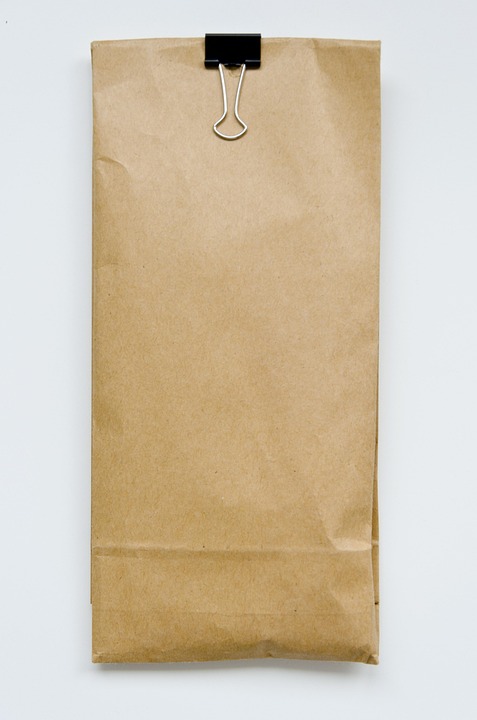-
首頁 東莞厚街工業園

The Impact of Paper Bags on the Food and Beverage Industry
[ad_1]
The Impact of Paper Bags on the Food and Beverage Industry
The food and beverage industry has been significantly impacted by the rise of eco-friendly alternatives, particularly the increasing popularity of paper bags. Consumers, environmentalists, and businesses alike have been focusing on reducing plastic waste and its harm on the environment. The paper bag is now emerging as a viable, sustainable, and appealing option for pack-a-ge and storage. In this article, we’ll delve into the impact of paper bags on the food and beverage industry, exploring benefits, challenges, and the future of paper-based packaging.
Benefits of Paper Bags
Paper bags offer several benefits that have made them an attractive alternative to traditional plastic bags. Firstly, they are biodegradable and compostable, significantly reducing the risk of pollution and harm to the environment. Additionally, paper bags are made from renewable resources, producing zero waste when manufactured, and can be recycled, making them a sustainable option.
Another significant benefit is that paper bags are apex of a various shape and size, allowing for creative and customizable designs, thus making them an attractive marketing tool for businesses. With extra space for branding, promotions, and messages, paper bags offer a unique opportunity for businesses to increase brand awareness.
Although paper bags have their advantages, there are also challenges that come with adopting this new material. One major concern is the infrastructure for collecting, sorting, and recycling paper waste. The current infrastructure is not yet equipped to handle the sheer scale of paper waste, leading to concerns over contamination and effectiveness. Another challenge lies in the manufacturing process, as it is generally less efficient and requires more energy than plastic bag production. This increased energy demand can lead to increased carbon emissions, a contrary effect to the environmental benefits of using paper bags.
In the face of growing environmental concerns and increasing regulations, the food and beverage industry is poised to adopt paper bags as a standard packaging solution. As technology advances and infrastructure improves, paper bags will continue to gain popularity and become a mainstream option for businesses and consumers alike. Advancements in manufacturing processes, such as composite papers made from recycled materials, will help address some of the challenges associated with paper bags. Additionally, innovative designs and solutions will emerge, tackling issues with weight, durability, and handling. In conclusion, the impact of paper bags on the food and beverage industry is poised to be significant, with both benefits and challenges to address. As the world shifts towards a more eco-friendly and sustainable future, paper bags will become an increasingly important aspect of packaging in the industry. The future of the food and beverage industry is converging towards a more eco-friendly approach, with paper bags playing an important role in this transformation. While there are challenges to overcome, the benefits of paper bags make them an attractive solution for consumers and businesses alike. With advancements in manufacturing processes and infrastructure, paper bags are likely to become the go-to solution for packaging and storage. Q: What are the advantages of paper bags over plastic bags? A: Paper bags are biodegradable, compostable, and made from renewable resources, making them a more sustainable option. Additionally, they offer a unique branding opportunity and are tactile-friendly for customers with sensitivities or allergies. Q: Are paper bags expensive to manufacture? A: Yes, the manufacturing process for paper bags is generally less efficient and requires more energy, which can increase production costs. However, advancements in technology are working to address this challenge. Q: Can paper bags be recycled? A: Yes, paper bags can be recycled, and many companies are working to improve the infrastructure for collecting and recycling paper waste. However, more work is needed to ensure effective and efficient recycling processes. Q: How do paper bags affect the weight and durability of products? A: Paper bags can be heavier and less durable than plastic bags, making them more challenging to handle and transport. However, advancements in materials and designs are addressing these concerns and improving the overall performance of paper bags. Q: Will paper bags become the new standard for food and beverage packaging? A: Yes, the trend towards eco-friendliness and sustainability is expected to continue, with paper bags becoming a mainstream option for the food and beverage industry in the near future.Challenges of Paper Bags
The Future of Paper Bags in the Food and Beverage Industry
Conclusion
FAQs
Note: The HTML tags
,,
, and are used to format the content. The article is divided into sections with relevant headings and subheadings. The FAQs section provides answers to common questions about paper bags and their impact on the food and beverage industry.
[ad_2]





